Sierra Tucson offers effective, comprehensive treatment for individuals struggling with addiction and mental health concerns. Learn more about the signs and symptoms of ADHD.
Understanding ADHD
Learn about ADHD
Attention-deficit/hyperactivity disorder (ADHD) is a relatively common mental health disorder that can follow an individual into adulthood. Those with ADHD struggle with maintaining focus or paying attention, as well as managing their behaviors. Additionally, they can appear hyperactive at times. Each one of these symptoms can make it challenging for to succeed professionally, respond appropriately in social settings, and manage responsibilities at home. Individuals with ADHD can suffer from low self-esteem and experience significant trouble with interpersonal relationships. Many of the symptoms of ADHD will lessen over time, however, there are many who continue to experience prominent symptoms throughout their lives.
There is no cure for ADHD but, thankfully, receiving the appropriate, comprehensive treatment needed can help individuals learn how to manage their symptoms. Furthermore, appropriate care can help those with ADHD live successfully and lead highly productive lives.
Statistics
ADHD statistics
The American Psychiatric Association (APA) states that roughly 5% of children and 2.5% of adults suffer from the symptoms of attention-deficit/hyperactivity disorder, with the condition commonly affecting males with more frequency than females.
Causes and Risk Factors
Causes and risk factors for ADHD
The development of ADHD has been connected with many possible causes and risk factors, including the following:
Genetic: Those who have a first-degree relative who struggles with ADHD is more likely to experience this condition than those who do not share the same genetic history. The APA states that ADHD is a significantly heritable condition; however, the presence of specific genes are not required for the symptoms of this condition to develop.
Environmental: Some experts believe that there might be a connection between smoking cigarettes and drinking alcohol while pregnant that can cause an increased risk for ADHD in children. Additionally, the APA also reports that low birth weight can also add to one’s risk for developing ADHD. That being said, however, the majority of children who have a low birth weight do not go on to develop symptoms of this disorder.
Risk Factors:
- Family history of ADHD
- Reduced behavioral inhibition
- Possessing a novelty-seeking temperament
- Possessing negative emotionality
- Having multiple foster care placements
- Prenatal exposure to cigarettes
- History of child abuse
- Prenatal exposure to alcohol
- Being male
Signs and Symptoms
Signs and symptoms of ADHD
The signs and symptoms of ADHD will vary from person to person, and will be dependent on the subtype of the disorder that he or she is faced with. The symptoms below are categorized into three subtypes and include examples of behaviors that are indicative of each one:
Inattentive type:
- Has a tendency to lose things
- Has a difficult time following directions
- Is easily distracted
- Forgetfulness
- Is unable to pay attention to details or has a tendency to make careless mistakes
- Appears to have problems listening
- Has difficulty maintaining attention during tasks or activities
- Dislikes or avoids tasks that require mental effort
- Problems with organization
Hyperactive-impulsive type:
- Has a hard time waiting his or her turn
- Often interrupts or intrudes on others
- Frequently speaks without thinking
- Is constantly fidgeting or squirming
- Talks excessively
- Has a hard time staying seated
- Seems to always be on-the-go
Combined type: This is the most typical form of ADHD and includes symptoms of both the inattentive type and the hyperactive-impulsive type.
Effects
Effects of ADHD
If not effectively cared for, the long-term effects of ADHD can make one’s life highly difficult. Some of the negative effects of this disorder when it remains untreated can include, but are not limited to, the following:
- Relationship difficulties
- Poor self-esteem
- Problems at home
- Increased risk for substance abuse
- Difficulty interacting with and being accepted by peers
- Occupational failure
- Having more accidents and obtaining injuries
Co-Occurring Disorders
ADHD and co-occurring disorders
Many individuals who have ADHD also grapple with one or more co-occurring mental health conditions. Those who have ADHD are six times more likely to have at least one other mental health illness. The most common disorders that co-occur with ADHD can include the following:
- Tic disorders
- Autism spectrum disorder
- Oppositional defiant disorder (ODD)
- Anxiety disorders
- Conduct disorder
- Obsessive-compulsive disorder (OCD)












